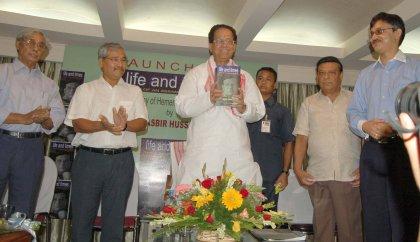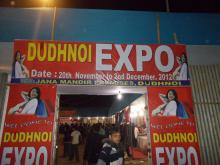The book, published by Spectrum Publications, Guwahati/New Delhi, was released by chief minister Tarun Gogoi at a function in a city hotel here on Saturday. The packed gathering included guests of honour Jahnu Barua, a celebrated filmmaker, playwright Arun Sarma, and Hemen Barooah, the man himself. The book is not just about Barooah, it is also about the times in which he lived and the fascinating people he had encountered from across the world —thieves and conmen, painters and politicians, lovers and musicians, business tycoons and lunatics, god men and frauds, and many more.
Barooah says in the book how on June 11, 1990 he along with 13 other top tea company captains from across India met ULFA leaders at the tea garden bungalow of a leading business family in Dibrugarh after the outfit summoned them to 'discuss the active participation of the tea industry in the economic development' of the state. The then chief minister Prafulla Kumar Mahanta advised Barooah not to meet the ULFA leaders. 'Who advised you to go for the meeting?
I suggest, you don't go,' Hemen remembered Mahanta as having told them. But, the tea captains were prepared to take the risk and face the rebels. Barooah in his biography recounts how they went in three cars to meet the ULFA leaders – the meeting ended just before the crack of dawn with the rebels talking to the planters individually and demanding hefty amounts. The ULFA, however, did not demand any money from Barooah in that meeting. 'An ULFA caller one day threatened to kidnap me from Calcutta. That was the first time I got scared. I could not sleep that night," Barooah said in the book. Such was the pressure from the ULFA that Barooah was even traced in the US where he was on a holiday with his daughter, trying to beat the stress. The phone buzzed at his daughter's home in Philadelphia. "Dada, are you all right? How's your daughter," an ULFA militant said on the phone at a time when there were reports in the media in Assam that he had 'fled' India.
On the lighter side of his life, Barooah in the biography recounts the night when he and Dr Bhupen Hazarika searched for the music icon's lost Rolex watch on a desolate road near Sivasagar, besides his encounter with the man behind the Great Train Robbery in the UK. Hemen narrated many fascinating tales in the book, including his 'secret' meeting with Mrs Indira Gandhi at the Circuit House in Jorhat, and her bus ride to the sleepy town of Golaghat.
The book gives an account of the society in Assam around the time India became independent and after that. It also details how Barooah became the first person from the North-east to obtain an MBA degree from the prestigious Harvard Business School (HBS). In fact, he belonged to the HBS's famous Class of 1949 and has batch mates who went on to transform the destiny of American business. The book talks about Hemen the art collector, the connoisseur of music, Hemen the racing enthusiast, and Hemen the tabla player, having been a disciple of Ustad Munwar Ali of Calcutta.
Speaking on the occasion, Hussain said: " Aside from writing about his life, I have tried to give an account of the challenges facing the Assamese planters during the British Raj. The British, after all, never wanted the locals to enter into the business of tea. The story of Bisturam Barooah, Mr Hemen Barooah's grand-father, is indeed remarkable, because here was a man who displayed both foresight and tact by venturing into forbidden territory, by keeping the sahibs on the right side. The battle with tea giant Williamson Magor, agents of the Barooahs, had indeed been interesting. The links finally got snapped between the Barooahs and Williamson Magor in the early fifties. By that time, Assamese planters had come of age."
Photo © : UBPhotos.com






Comments
Pages
Add new comment